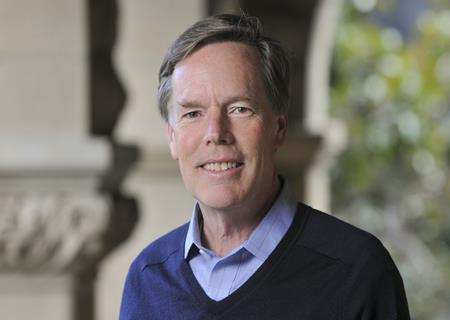
06 Jun Nicholas Burns

Speaker: Nicholas Burns
Former U.S. Ambassador to Greece and NATO, Former U.S. Under Secretary of State for Political Affairs, Former White House Special Assistant and Professor, Practice of Diplomacy and International Politics, Harvard Kennedy School
Speech Topics Include:
- The Future of America’s National Security
- Egypt and the Middle East
- The Economic Crisis: Its Impact on U.S. Competitiveness and Our World Standing.
Keynote speaker Nicholas Burns is Professor of the Practice of Diplomacy and International Politics at the Harvard Kennedy School of Government. Speaker Nicholas Burns is Director of the Future of Diplomacy Project and Faculty Chair for the Programs on the Middle East and on India and South Asia. He serves on the Board of Directors of the School’s Belfer Center for Science and International Affairs and is a Faculty Associate at Harvard’s Weatherhead Center for International Affairs.
He is Director of the Aspen Strategy Group, Senior Counselor at the Cohen Group, and serves on the Board of Directors of Entegris, Inc. He writes a biweekly column on foreign affairs for the Boston Globe.
Burns serves on the boards of several non-profit organizations, including the Council on Foreign Relations, Special Olympics, the Rockefeller Brothers Fund, the Center for the Study of the Presidency and Congress, the Richard Lounsbery Foundation, the Atlantic Council, American Media Abroad, the Association of Diplomatic Studies and Training, the Appeal of Conscience Foundation, and the Gennadius Library. He is Vice Chairman of the American Ditchley Foundation and serves on the Panel of Senior Advisors at Chatham House: the Royal Institute of International Affairs. Speaker Nicholas Burns is a member of the Committee on Conscience of the United States Holocaust Memorial Museum. He is also a member of the American Academy of Arts and Sciences, the Trilateral Commission, the Order of Saint John, and Red Sox Nation.
Professor Burns served in the United States government for twenty-seven years. As a career Foreign Service Officer, he was Under Secretary of State for Political Affairs from 2005 to 2008; the State Department’s third-ranking official when he led negotiations on the U.S.–India Civil Nuclear Agreement; a long-term military assistance agreement with Israel; and was the lead U.S. negotiator on Iran’s nuclear program. He was U.S. Ambassador to NATO (2001–2005), Ambassador to Greece (1997–2001) and State Department Spokesman (1995–1997). He worked for five years (1990–1995) on the National Security Council at the White House where he was Senior Director for Russia, Ukraine and Eurasia Affairs and Special Assistant to President Clinton and Director for Soviet Affairs in the Administration of President George H.W. Bush. Speaker Nicholas Burns also served in the American Consulate General in Jerusalem (1985–1987) where he coordinated U.S. economic assistance to the Palestinian people in the West Bank and before that, at the American embassies in Egypt (1983-1985) and Mauritania (1980 as an intern).
Speaker Nicholas Burns has received twelve honorary degrees, the Secretary of State’s Distinguished Service Award, the Woodrow Wilson Award for Public Service from the Johns Hopkins University, the Boston College Alumni Achievement Award and the Jean Mayer Global Citizenship Award from Tufts University. He has a BA in History from Boston College (1978), an MA in International Relations from the Johns Hopkins School of Advanced International Studies (1980), and earned the Certificat Pratique de Langue Francaise at the University of Paris-Sorbonne (1977). He was a visiting Scholar at the Woodrow Wilson Center for International Scholars in summer 2008.
The Future of America’s National Security
As recovery from the global financial crisis continues, one of the central challenges for world leaders moving forward is deciding how to create effective international actions to contain and overcome it. No nation can hope to address the financial and economic challenges alone but must instead work with the IMF, World Bank, and other international institutions to coordinate recovery efforts. In addition, the leading world powers must consider creation of new institutions to regain economic stability. As China, India, Brazil and other emerging market countries rise in power, they will also want greater leadership roles in existing institutions. How should the U.S. work to promote more effective global governance? Can President Obama keep the U.S. in a leadership position but also open the door to greater involvement by the rising powers? What are the implications of the rise of China, India and the other countries for America’s long-term security? Will we be able to work with Russia effectively at a difficult time in our bilateral relationship? These are among the most important questions for America as we look to the future. Nicholas Burns addresses these vital issues and their implications.
Egypt and the Middle East
Current turmoil in the Middle East will no doubt impact American interests. Ambassador Nicholas Burns discusses potential strategies for mitigating the risk. A prolonged crisis in Egypt could affect the price of oil, overall stability in the Middle East, Israeli security, and U.S. trade and investment. The emergence of a radical Islamist Egyptian government in the future would change the entire calculus of our policy. The revolts that have spread in the Arab world – from Tunisia and Egypt to Yemen and Jordan – will provide the most critical potential point of change in the politics, economics, and business interests of the Middle East in decades. Burns has been repeatedly interviewed by Fox, CNN, BBC, CBS, MSNBC, Al Jazeera, and other media on what these events mean for the business community in terms of trade, investment, energy markets, national security, and American interests in general. In this presentation, Burns address the crisis, its originations, and how the resulting changes will affect American business and security.
The Economic Crisis: Its Impact on U.S. Competitiveness and Our World Standing.
Wall Street’s collapse and the recent economic crisis affected people around the world. How should the Obama Administration and Congress react to this crisis and lead the way toward an eventual recovery? How should the U.S. act to protect our global economic interests? Nicholas Burns outlines how Americans must make an international economic recovery our overriding national goal. He makes a strong case that the new U.S. administration must continue to support American exports, resist protectionism, and work to restructure many of the leading international institutions to make them more effective in responding to current global challenges. Finally, he argues passionately that the U.S. must remain engaged in the world as an active and strong global leader and thus resist the twin illusions of isolationism and unilateralism.



